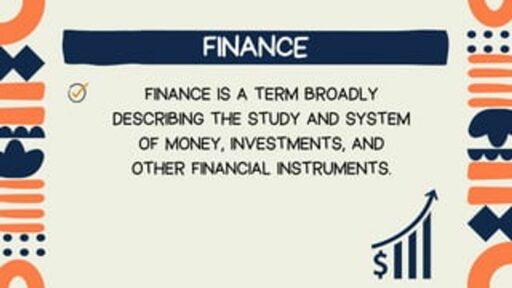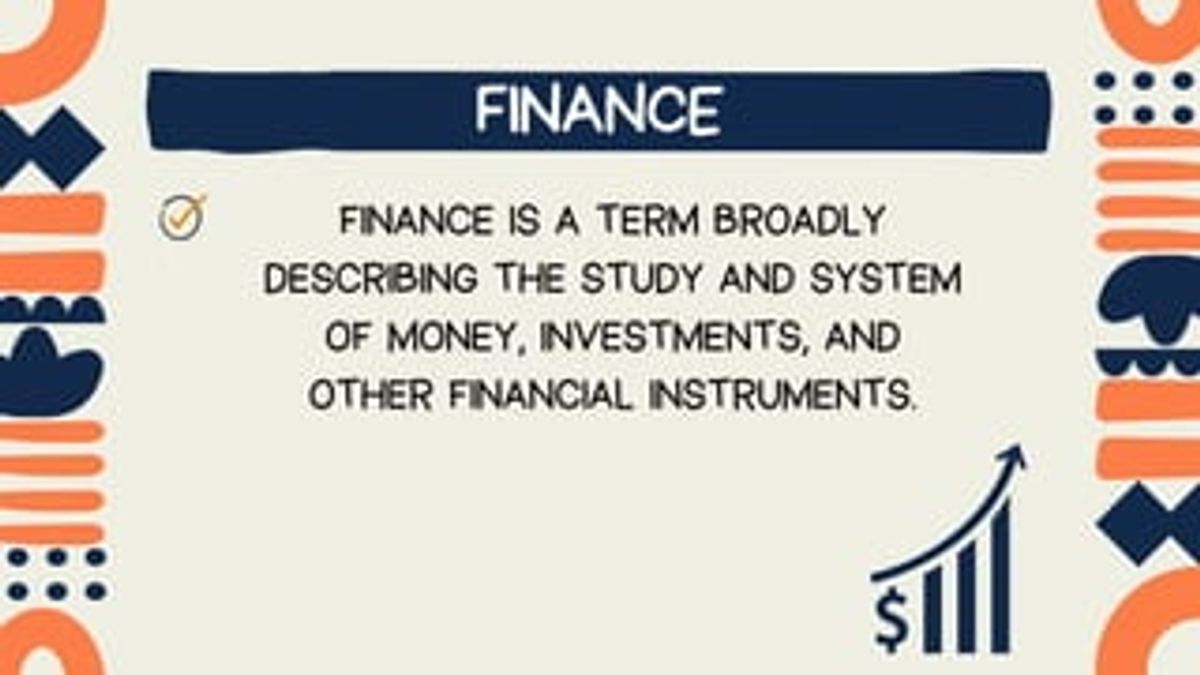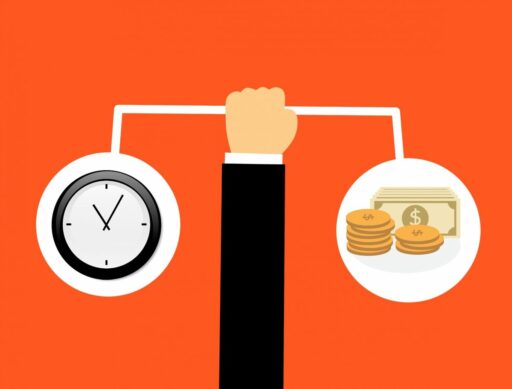Mastering personal finance management is a critical component of financial success. The concept encompasses a range of practices and knowledge areas that help individuals make informed decisions about their money. From budgeting and saving to understanding economic principles, personal finance is not just about managing money but also about achieving financial goals and ensuring a secure financial future. This article provides a comprehensive overview of the elements included in understanding personal finances, equipping you with the foundational knowledge to navigate your financial journey effectively.
Key Takeaways
- Effective budgeting is essential for financial control and achieving goals, including short-term desires and long-term plans like retirement.
- Personal Finance Economics combines key principles from financial and economic theories, offering insights into financial behavior and economic impact.
- Mastering the top 10 basics of personal finance, such as budgeting, saving, and sensible spending, is foundational to managing your finances wisely.
- Understanding different income streams and managing expenses are crucial for maintaining a balanced budget and a comfortable cost of living.
- Planning personal finance goals involves tracking income, prioritizing spending, and saving for the future to avoid financial pitfalls and achieve money objectives.
The Basics of Budgeting


The Importance of Budgeting
Understanding the importance of budgeting is crucial for maintaining financial health. Budgeting serves as a financial roadmap, guiding you through your income and expenses, and helping you make informed decisions. It’s not just about restricting spending; it’s about making sure every dollar works for you.
- Income Tracking: Know your total earnings.
- Expense Categorization: Separate needs from wants.
- Savings Allocation: Set aside funds for the future.
- Financial Prioritization: Focus on what’s important.
By taking control of your budget, you are taking control of your financial destiny. A well-planned budget allows you to prioritize your spending, save for the future, and prepare for both expected and unexpected costs.
Regular review and adjustment of your budget are essential to ensure it aligns with your changing financial circumstances. This dynamic approach to budgeting can help you stay on track with your financial goals and adapt to life’s ever-changing financial demands.
Balancing Your Bank Account
Balancing your bank account is a fundamental aspect of maintaining a healthy financial life. Keeping a close eye on your account balance helps prevent overdrafts, fraud, and ensures that you are aware of your spending habits. Regularly reviewing your account statements and reconciling them with your own records is crucial.
Balancing your account allows you to identify discrepancies early, adjust for any errors, and stay on top of your financial transactions.
Here are some steps to effectively balance your bank account:
- Review your bank statement and compare it with your own records.
- Note any discrepancies and investigate the cause.
- Keep track of all your deposits and withdrawals.
- Monitor for any unauthorized transactions.
By following these steps, you can ensure that your bank account reflects an accurate picture of your financial status, which is essential for making informed decisions about your money.
Setting Financial Goals
Setting financial goals is a critical step in achieving financial stability and security. By establishing goals that are Specific, Measurable, Attainable, Relevant, and Time-bound (SMART), you create a clear path to success. This approach not only provides direction but also helps in maintaining focus and motivation over time.
Financial goals can be categorized into short-term and long-term objectives. Short-term goals often include saving for a vacation, paying off credit card debt, or creating an emergency fund, while long-term goals might involve saving for retirement, buying a home, or funding education.
It’s essential to regularly review and adjust your financial goals to reflect changes in your life circumstances, ensuring they remain aligned with your current financial situation and future aspirations.
Here’s a simple breakdown of goal categories:
- Short-term Goals: Immediate needs and expenses
- Mid-term Goals: Objectives achievable within 1 to 5 years
- Long-term Goals: Aspirations that require extensive planning and saving
Remember, the journey to financial well-being starts with clear and actionable goals. Take the time to define what financial success looks like for you and start charting your course today.
Personal Finance Planning Goals


Budgeting and Tracking Income
Understanding and managing your income is the cornerstone of sound personal finance. Budgeting is not just about restricting spending, but about empowering yourself to make informed financial choices. It involves categorizing your income sources and expenses, which allows you to allocate funds effectively and work towards your financial goals.
Regularly reviewing and adjusting your budget is crucial. It ensures that your financial plan adapts to changes in income or expenses, keeping you on the path to financial security.
To effectively track your income and expenses, consider the following steps:
- Identify all sources of income, including salaries, bonuses, and any passive income.
- Categorize expenses into fixed (e.g., rent, utilities) and variable (e.g., dining out, entertainment).
- Use tools like apps or spreadsheets to monitor your spending patterns over time.
- Adjust your budget as needed to reflect changes in your financial situation.
By diligently tracking your income and expenses, you can identify areas where adjustments may be necessary, ensuring that every dollar is working towards your financial objectives.
Prioritizing Spending
Prioritizing spending is a critical step in personal finance planning. Allocating funds to essential expenses first ensures that your basic needs are met, providing a foundation for financial stability. Discretionary spending, while also important for a balanced lifestyle, should come after securing your necessities.
By categorizing expenses, individuals gain clarity on where their money is going, which is instrumental in making informed financial decisions.
It’s not just about limiting expenses, but also about understanding the value derived from each dollar spent. This involves analyzing spending patterns and making necessary adjustments to ensure that your money aligns with your financial goals and values.
Here’s a simple way to prioritize your spending:
- Identify and categorize your expenses.
- Set realistic spending limits for each category.
- Regularly review and adjust your budget as needed.
- Reallocate funds from non-essential to essential categories or savings.
- Stay disciplined and avoid impulse purchases.
Remember, the goal is to optimize the impact of your budget, promoting financial responsibility and long-term security.
Saving for the Future
Saving for the future is a critical component of sound financial planning. Starting early to save for retirement is advantageous due to the power of compound interest, which allows your savings to grow exponentially over time. It’s not just about retirement; saving for emergencies and major life milestones is equally important.
- Save for Emergencies – It’s recommended to save at least 10% of your income monthly for unexpected events.
- Saving Automatically – Establishing automatic transfers to savings accounts can help build the habit of saving.
- Saving for Major Milestones – Whether it’s for education, a home, or retirement, setting aside funds for significant events is crucial.
By regularly contributing to savings accounts and tracking progress, individuals can build a solid foundation for their financial future. Seeing the growth of savings can provide a sense of accomplishment and motivate continued efforts.
Paying down debt is also a form of saving, as it reduces future interest payments and financial liabilities. Regardless of age, it’s never too late to start saving. The key is to have a strategy that includes saving for the unexpected, for major milestones, and for retirement.
Basic Concepts of Personal Finance Economics


Understanding Income Streams
Understanding your income streams is a fundamental aspect of personal finance. It involves not only recognizing your primary source of income, such as a full-time job, but also identifying any supplementary income like freelance work or investment returns. This comprehensive view is crucial for effective budgeting and financial planning.
Mastering Money Management is essential for a stable financial foundation. It encompasses the entirety of personal finance, from budgeting to investments, ensuring financial literacy and responsible usage.
Diversifying income sources can lead to greater financial stability. Exploring additional revenue streams, such as side gigs or freelancing, can help cover expenses or enhance savings. This proactive approach is part of creating a robust financial strategy.
Forecasting future income and expenses is an advanced technique that can significantly aid in financial planning. By analyzing past financial patterns, individuals can prepare for anticipated changes and adjust their budgets accordingly.
Managing Expenses and Cost of Living
Effectively managing expenses is a cornerstone of sound personal finance. It involves a meticulous review of both fixed and variable costs to ensure that spending aligns with financial objectives. Fixed costs, such as rent or mortgage payments, are predictable and often unavoidable, while variable expenses, like dining out or entertainment, can fluctuate and offer more room for adjustment.
- Fixed Costs: Rent, Mortgage, Insurance
- Variable Costs: Entertainment, Dining Out, Shopping
By categorizing expenses, individuals gain clarity on where their money is going, which is crucial for identifying potential savings. For example, a closer look at monthly spending may reveal a high cost associated with dining out, prompting a strategic cutback in that area to free up funds for savings or debt repayment.
It is essential to regularly reassess expenses to maintain financial health. What was once a necessity might no longer be relevant, allowing for strategic reallocation of funds.
Remember, the process of reducing expenses is ongoing. As life circumstances and priorities shift, so should the approach to spending. Staying proactive in this area is key to achieving long-term financial stability and reaching personal finance goals.
The Role of Savings in Personal Finance
Savings play a pivotal role in personal finance, acting as the bedrock for financial security and independence. It is the foundation upon which financial goals are built, whether they are short-term objectives like saving for a vacation, or long-term aspirations such as retirement.
Effective savings strategies are crucial for weathering unexpected expenses and achieving desired financial milestones. Here are three reasons why you should start saving money today:
- Emergency Preparedness: Having a financial cushion can help you manage unforeseen events without the need to incur debt.
- Financial Goals Achievement: Savings enable you to set and reach financial targets, providing a sense of accomplishment and direction.
- Investment Opportunities: Accumulated savings can be invested to generate additional income, further enhancing your financial stability.
Savings should not be seen as leftover money but as a priority allocation in your budget. It is a proactive step towards ensuring a stable and secure financial future.
Understanding Personal Finance Economics


The Intersection of Economics and Personal Finance
The intersection of economics and personal finance is a critical area of study that reveals how individual financial behavior impacts and is influenced by the broader economy. Personal finance economics affects inflation and interest rates by impacting demand levels. When individuals are financially robust and spending more, this can lead to increased demand for goods and services, which in turn can affect the overall economic health.
Understanding personal finance economics is crucial because it combines key principles from both financial and economic theories. This comprehensive overview allows individuals to see the far-reaching impacts of their financial decisions. For instance, saving habits can influence national savings rates, while consumer spending can drive economic growth.
Personal finance decisions are not made in a vacuum; they reflect and shape economic trends and realities.
Here are some key takeaways that highlight the importance of personal finance economics:
- It correlates economic theories and principles with personal financial behavior.
- It helps to better comprehend the financial decision-making processes.
- It incorporates several fundamental concepts pertinent to both economics and finance.
The Impact of Financial Decisions on the Economy
The choices we make in our personal finances extend far beyond our own bank accounts. Economists like John Maynard Keynes and Milton Friedman have highlighted the profound influence that individual financial decisions have on the broader economy. These decisions contribute to macroeconomic factors such as consumption patterns, saving rates, and investment trends, which in turn affect economic performance and policy.
Personal finance is about managing your budget and how best to put your money to work to realize your financial independence and goals.
In the UK, for instance, personal finance economics plays a pivotal role in economic stability. Changes in spending behaviors, investments, and savings rates can lead to fluctuations in demand for goods and services, property values, and subsequently, impact inflation, employment rates, and overall GDP. Understanding the ripple effect of our financial choices can empower us to make more informed decisions that not only benefit our personal financial health but also contribute to the economic growth and stability of the nation.
Macroeconomic Principles in Personal Finance
Understanding the macroeconomic principles in personal finance is essential for navigating personal finance for financial stability and independence. These principles help individuals understand how broader economic trends can influence their personal financial decisions.
- Economic trends and cycles
- Management of income and expenses
- Investments and savings for future growth
- Risk management
By applying macroeconomic concepts, individuals can make informed decisions that align with both their short-term needs and long-term financial goals. It’s not just about the numbers; it’s about understanding the economic environment and how it affects personal wealth and financial literacy.
The intersection of personal finance and macroeconomics is a dynamic space where individual actions can collectively influence economic outcomes.
Recognizing the impact of inflation and interest rates on personal finances is also crucial. These elements are directly tied to macroeconomic policies and can affect everything from the cost of borrowing to the value of savings. By staying informed and adaptable, individuals can better manage their debt, credit, and investments, ensuring they are prepared for the economic challenges and opportunities that lie ahead.
Top 10 Basics of Personal Finance


Mastering Budgeting Techniques
Mastering budgeting techniques is essential for personal finance management. Effective budgeting provides control over your finances, enabling you to make informed decisions that align with your financial goals. Regular review and adjustment of your budget are key to ensuring its continued relevance and effectiveness.
Budgeting methods vary, and choosing the right one depends on individual financial situations and preferences. For instance, the Zero-Based Budgeting approach allocates every dollar to specific expenses, ensuring there are no unaccounted funds.
Embracing advanced budgeting techniques and adapting to changing economic conditions can significantly enhance your financial well-being.
Understanding and implementing various budgeting methods, managing expenses, and setting financial goals are steps on the journey to financial empowerment. The 50/30/20 rule is a simple yet powerful guideline to structure your budget: 50% for needs, 30% for wants, and 20% for savings and debt repayment.
Smart Saving Strategies
Smart saving strategies are essential for achieving financial security and reaching long-term goals. Allocating funds strategically can lead to significant financial growth over time. It’s important to start by defining clear financial goals for savings and expenses, which will guide your saving habits.
- Define clear financial goals
- Create a detailed budget
- Prioritize debt management
- Build an emergency fund
Analyzing recurring expenses is a crucial step in smart saving. Subscriptions and memberships should be evaluated for their alignment with your financial goals. Smart shopping techniques, such as price comparison, using coupons, and taking advantage of sales, can also contribute to savings without compromising on quality.
By saving automatically and preparing for the unexpected, you can ensure that you’re not only saving for major milestones but also paying down debt, which is a form of saving in itself.
Remember, mastering personal finance is not just about saving; it’s about learning to budget, manage debt, invest, and understand tax planning. Each stage of your financial journey requires different strategies, from budgeting for stability to investing for wealth.
Sensible Spending and Debt Management
Efficient debt management and sensible spending are cornerstones of personal financial stability. By adopting strategies that prioritize debt repayment while balancing savings, individuals can navigate towards a debt-free life. The 50/30/20 rule is a simple budgeting framework that allocates income to needs, wants, and savings or debt repayment, providing a structured approach to managing finances.
It’s crucial to find a balance between repaying debts and saving for the future. This balance ensures that while you are reducing your debt burden, you are also building a safety net.
Understanding the dynamics of personal finance involves recognizing the importance of budgeting, saving, and investing. Utilizing financial tools and resources can significantly aid in achieving these financial goals. Here’s a list of strategies that can help manage spending and debt:
- Implement the snowball method to tackle smaller debts first, creating momentum as each balance is paid off.
- Explore consolidation options to simplify multiple debts into a single payment, potentially with a lower interest rate.
- Regularly review and adjust your budget to reflect changes in income or expenses.
- Prioritize high-interest debts to minimize the total interest paid over time.
Conclusion: Empowering Your Financial Journey
In conclusion, mastering the elements of personal finance is an empowering step towards financial independence and security. From the basics of budgeting to the complexities of personal finance economics, each aspect plays a crucial role in shaping your financial future. Understanding income, spending, and savings, as well as setting clear financial planning goals, provides a solid foundation for making informed decisions. Remember, personal finance is not just about managing money—it’s about achieving your personal goals and living the life you envision. By embracing these principles and continuing to educate yourself, you can navigate the financial landscape with confidence and ease.
Frequently Asked Questions
What are the key takeaways from personal finance economics?
Personal finance economics provides the foundational knowledge to build a robust financial future. It involves understanding income, managing expenses, prioritizing spending, and saving efficiently.
Why is budgeting considered a fundamental aspect of personal finance?
Budgeting is crucial because it allows individuals to gain control over their money, ensuring expenses do not exceed income. It’s the first step towards achieving financial goals and preventing debt.
How can an online bank account benefit my personal finance strategy?
An online bank account, like SoFi, can offer higher interest rates, up to 4.60% APY, helping your savings grow faster without requiring a minimum balance.
What are some basics of personal finance planning goals?
Personal finance planning goals include budgeting wisely, saving effectively, spending sensibly, investing, managing debt, and understanding credit to achieve short-term and long-term financial aspirations.
What does personal finance economics incorporate?
Personal finance economics incorporates understanding income streams, managing expenses and the cost of living, and the role of savings. It delves into strategies for effectively managing financial resources.
How does understanding personal finance economics benefit me?
Understanding personal finance economics gives you insights into your financial behavior and its impact on the broader economy. It combines economic and financial theories to illustrate how personal decisions can have widespread effects.




